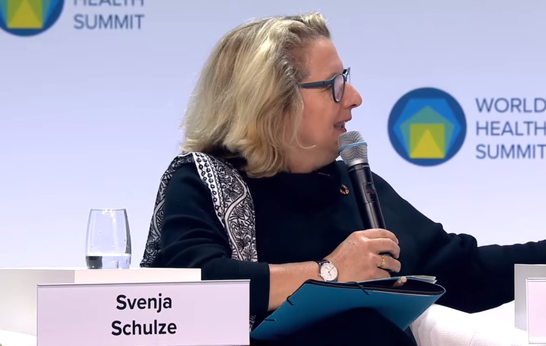While neglected tropical diseases (NTDs) have significant health implications for both men and women, they pose a disproportionate burden on women and girls due to social, economic, biological, and cultural factors. Furthermore, certain NTDs, such as schistosomiasis and soil-transmitted helminths, can directly affect women's reproductive health and increase the risk of adverse outcomes during pregnancy.
By ensuring the availability and accessibility of NTD prevention and treatment interventions, we can actually reverse for some NTDs severe health complications, reduce absenteeism from school or work, and improve participation in education, employment, and community development. These efforts not only address the immediate health impact for women and girls, but also contribute to breaking the cycle of poverty and gender inequality.
Arguments: NTDs and gender equity
Neglected tropical diseases (NTDs) are a group of preventable and treatable diseases that affect more than one billion people around the world. NTDs cause immeasurable suffering. They debilitate, disfigure and can be fatal. By most commonly affecting some of the most vulnerable people in the world, NTDs create cycles of poverty – costing an estimated US$ 33 billion each year in out-of-pocket health expenditures and lost wages.
Women bear a disproportionate burden when it comes to a number of NTDs. Certain NTDs, such as schistosomiasis and soil-transmitted helminths (STH), have severe reproductive health implications for women, including anaemia during pregnancy, premature birth, increased blood loss during childbirth, infertility, and significantly higher risk of HIV. It is estimated that one in every three pregnant women in sub-Saharan Africa is infected with hookworm (a type of STH). In some settings, hookworm is responsible for 54% of anaemia cases during pregnancy. Anaemia is one the highest risk factors for maternal health in Africa, accounting for at least 20% of maternal deaths.
Schistosomiasis can lead to female genital schistosomiasis (FGS) in women. FGS can triple the risk of HIV and cause damage to reproductive organs, resulting in infertility, ectopic pregnancy, and even maternal death. FGS is frequently misdiagnosed as a sexually transmitted infection (STI), exacerbating the stigma, which leads to social exclusion, and can breakdown of relationships. In sub-Saharan Africa it is estimated that up to 56 million women and girls currently suffer from FGS. Additionally, vertical transmission is common with some NTDs, such as Chagas, leishmaniasis and STH.
The impact of NTDs on women is further aggravated by societal norms and gender inequity. Limited financial resources, time constraints, and diminished autonomy create barriers that prevent women from accessing timely healthcare. The stigma and discrimination associated with NTDs further marginalize women and impede their ability to seek necessary medical services. Additionally, women's economic agency is compromised as they often work in the informal sector or assume unpaid caregiving roles for family members affected by NTDs, leading to financial strain and reduced healthcare access. In some communities, women may be required to obtain permission from their husbands to access NTD interventions, further hindering their ability to receive vital treatment. These inequities contribute to delayed diagnoses, restricted access to safe water and sanitation, and an unequal burden of caregiving responsibilities placed upon women.
Fortunately, treatments for these diseases exist. For schistosomiasis and STH, regular menstruation and fertility can even be restored through deworming, and FGS can be reversed with early interventions – thus reducing the risk of HIV infection and other co-morbidities. Interventions for these and other NTDs are affordable and highly effective.
Interventions to prevent and control NTDs are one of the “best buys” in global public health, yielding an estimated net benefit to affected individuals of about US$25 per US$1 invested in preventive chemotherapy. What’s more, investing in NTD programmes creates a ripple effect in society. It leads to better education, health, and employment outcomes, and transforms lives and communities.
Asks for NTDs and gender equity
- Advocate for NTD funding in Global Fund applications, to address co-infections and co-morbidities to reduce the burden of AIDS, TB, and Malaria. Specifically, emphasize the need for schistosomiasis treatment to reduce the risks of female genital schistosomiasis.
- Advocate for gender equity throughout all health interventions including NTD programming. Gender equity needs to be at the heart of all interventions to truly deliver the SDGs and leave no one behind.
- Advocate for the integration of NTD prevention, diagnosis and treatment within routine sexual and reproductive health screening. This includes championing capacity building in primary health care facilities.
